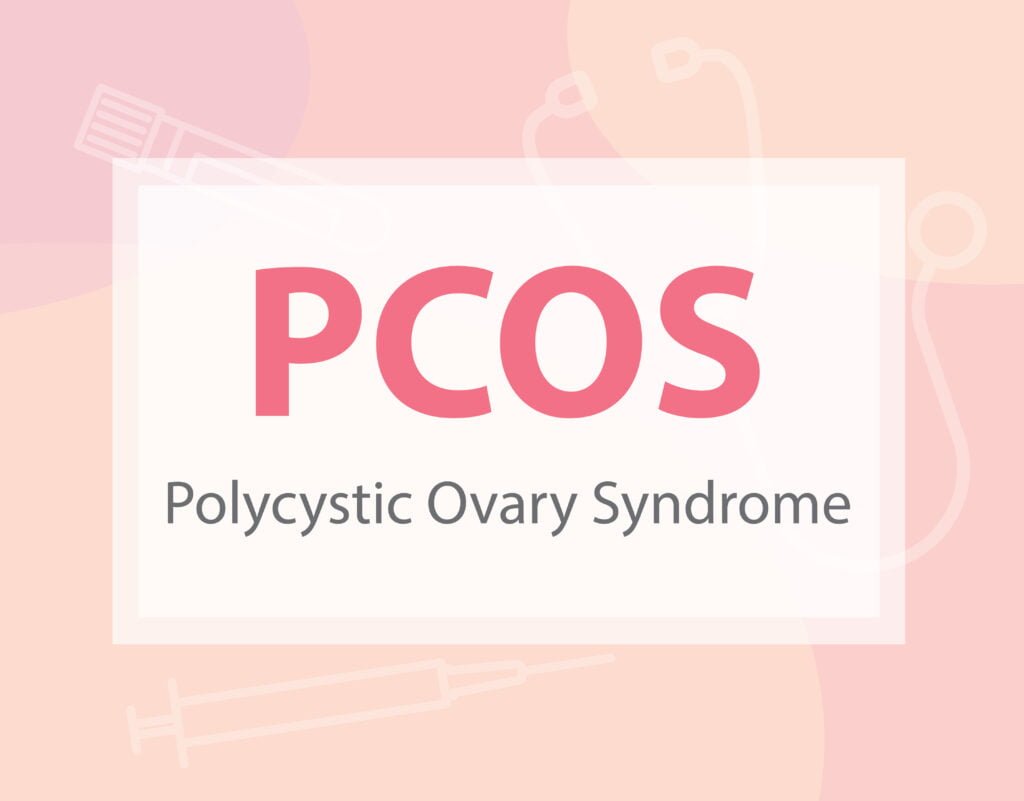Polycystic Ovary Syndrome (PCOS) is a common endocrine disorder that affects individuals, primarily women, during their reproductive years. One of the lesser-known symptoms associated with PCOS is the darkening of the neck, a condition known as acanthosis nigricans. While the exact cause of PCOS-related dark neck is not fully understood, it is believed to be linked to insulin resistance and hormonal imbalances. In this comprehensive guide, we will explore the various aspects of PCOS-related dark neck, including its causes, symptoms, and most importantly, PCOS and dark neck treatment to help individuals regain confidence and achieve a more even skin tone.
Contents
Understanding PCOS and Dark Neck
Polycystic Ovary Syndrome (PCOS) is a common hormonal disorder that affects people with ovaries, primarily during their reproductive years. It is characterized by a variety of symptoms, including irregular menstrual cycles, cysts on the ovaries, and hormonal imbalances. One lesser-known manifestation of PCOS is the occurrence of a condition known as acanthosis nigricans, which often leads to the darkening of the skin, particularly in areas such as the neck.
The link between PCOS and Dark Neck:
- Insulin Resistance: PCOS is often associated with insulin resistance, a condition where the body’s cells do not respond properly to insulin, leading to elevated insulin levels. Insulin resistance can stimulate the production of androgens (male hormones) and contribute to the development of acanthosis nigricans, resulting in darkened skin patches.
- Hormonal Imbalances: PCOS is characterized by imbalances in hormones, including elevated levels of androgens such as testosterone. These hormonal fluctuations can impact skin health and contribute to pigmentation issues.
Symptoms of PCOS Dark Neck:
- Acanthosis Nigricans: The hallmark symptom is the presence of dark, velvety patches on the skin, often resembling a “rash” or discoloration. These patches can occur in body folds and creases, with the neck being a common site.
- Skin Thickness and Texture Changes: Along with darkening, individuals may experience skin thickening and changes in texture. The affected skin may feel velvety or rough.
Diagnosis:
- Clinical Evaluation: A healthcare professional, often a dermatologist or endocrinologist, can diagnose PCOS-related dark neck through a physical examination, considering the appearance of skin changes and associated symptoms.
- Hormone Testing: Blood tests may be conducted to assess hormone levels, especially androgens and insulin, to confirm the presence of hormonal imbalances.
PCOS and Dark Neck Treatment Methods
Polycystic Ovary Syndrome (PCOS) and the associated darkening of the neck, known as acanthosis nigricans, can be effectively managed through a combination of lifestyle modifications, topical treatments, medical interventions, and, in some cases, dermatological procedures. Here is a detailed overview of the various treatment methods:
Lifestyle Modifications

Lifestyle modifications play a crucial role in managing PCOS (Polycystic Ovary Syndrome) and addressing associated symptoms such as darkening of the neck (acanthosis nigricans). Here are some lifestyle changes that can be incorporated as part of PCOS and dark neck treatment:
Balanced Diet:
- Low-Glycemic Foods: Focus on incorporating low-glycemic foods to help regulate blood sugar levels. Choose whole grains, fruits, vegetables, and lean proteins while minimizing the intake of refined carbohydrates and sugars.
- Portion Control: Maintain portion control to prevent excessive calorie intake. This can aid in weight management, which is crucial for PCOS symptom control.
- Regular Meals: Eat regular meals and avoid skipping meals. Consistent meal timing helps regulate insulin levels.
- Healthy Fats: Include sources of healthy fats, such as avocados, nuts, and olive oil, in your diet.
Regular Exercise:
- Aerobic Exercise: Engage in regular aerobic exercises like brisk walking, jogging, swimming, or cycling. Aim for at least 150 minutes of moderate-intensity exercise per week.
- Strength Training: Include strength training exercises to build muscle mass. Muscle tissue helps improve insulin sensitivity.
- Consistency: Make exercise a consistent part of your routine to promote long-term health benefits.
Weight Management:
- Healthy Weight Goals: Achieve and maintain a healthy weight through a combination of diet and exercise. Weight loss can improve insulin sensitivity and regulate menstrual cycles.
- Professional Guidance: Consult with a nutritionist or healthcare professional for personalized weight management advice.
Stress Management:
- Relaxation Techniques: Practice stress-reducing techniques such as meditation, deep breathing exercises, or yoga to manage stress levels.
- Adequate Sleep: Ensure you get enough quality sleep. Lack of sleep can contribute to hormonal imbalances and insulin resistance.
Hydration:
- Water Intake: Stay adequately hydrated by drinking enough water throughout the day. Proper hydration supports overall health and can benefit your skin.
Limiting Certain Foods:
- Processed Foods: Minimize the consumption of processed and high-sugar foods, as they can contribute to insulin resistance and inflammation.
- Dairy: Some individuals with PCOS find benefits in reducing the intake of high-fat dairy products. Experiment with alternatives like almond or soy milk.
Topical Treatments
Topical treatments can be effective in managing the darkening of the neck associated with PCOS (Polycystic Ovary Syndrome) and acanthosis nigricans. These treatments aim to address hyperpigmentation, improve skin texture, and promote an even skin tone. It’s important to note that consulting with a dermatologist is crucial for a proper diagnosis and personalized treatment plan. Here are some topical treatments commonly used for PCOS-related dark neck:
- Skin Lightening Creams:
- Hydroquinone: Hydroquinone is a widely used skin-lightening agent that inhibits melanin production. It is available in both over-the-counter and prescription-strength formulations.
- Alpha Arbutin: Alpha arbutin is a natural skin-lightening ingredient that can be found in some over-the-counter products. It works by inhibiting the activity of tyrosinase, an enzyme involved in melanin production.
- Kojic Acid: Kojic acid is derived from fungi and has skin-lightening properties. It inhibits melanin production by interfering with tyrosinase.
- Topical Retinoids:
- Tretinoin (Retin-A): Tretinoin is a prescription retinoid that promotes skin cell turnover and helps fade dark spots. It can improve skin texture and reduce pigmentation when used under the guidance of a dermatologist.
- Adapalene: Available both over-the-counter and by prescription, adapalene is a retinoid that can improve skin texture and address hyperpigmentation.
- Vitamin C Serums:
- Vitamin C is known for its antioxidant properties and its ability to brighten the skin. Vitamin C serums can help reduce hyperpigmentation and promote a more even skin tone.
Medical Interventions

Medical interventions play a significant role in managing PCOS (Polycystic Ovary Syndrome) and addressing associated symptoms, including darkening of the neck (acanthosis nigricans). These interventions are typically prescribed and supervised by healthcare professionals, such as gynecologists, endocrinologists, and dermatologists. Here are some medical interventions commonly used for PCOS-related dark neck treatment:
- Prescription Medications:
- Metformin: Metformin is an oral medication commonly prescribed to manage insulin resistance associated with PCOS. By improving insulin sensitivity, metformin may help regulate hormonal imbalances and reduce acanthosis nigricans, including darkening of the neck.
- Birth Control Pills: Oral contraceptives containing estrogen and progestin are often prescribed to regulate menstrual cycles and hormone levels in individuals with PCOS. This hormonal regulation may contribute to improvements in acanthosis nigricans.
- Anti-Androgen Medications: Medications such as spironolactone may be prescribed to block the effects of androgens (male hormones) in the body. This can help manage symptoms like excessive hair growth and may have a positive impact on acanthosis nigricans.
- Hormonal Therapy:
- GnRH Agonists or Antagonists: Gonadotropin-releasing hormone (GnRH) agonists or antagonists may be used to regulate the menstrual cycle and reduce androgen production. These medications are typically administered by injection.
- Ovulation Induction: Fertility medications like clomiphene citrate may be prescribed to induce ovulation in individuals with PCOS who are trying to conceive. Regulating ovulation can have positive effects on hormonal balance and related skin issues.
- Procedures:
- Laser Therapy: Dermatological procedures such as laser therapy, including laser skin resurfacing or intense pulsed light (IPL), may be used to target pigmented areas on the neck. These treatments can promote skin renewal and improve the appearance of acanthosis nigricans.
- Chemical Peels: Dermatologists may perform chemical peels to exfoliate the outer layer of the skin, reducing pigmentation and improving skin texture. This procedure involves applying a chemical solution to the skin, causing it to peel and regenerate.
Home Remedies

While home remedies may not directly treat the underlying hormonal imbalances associated with PCOS (Polycystic Ovary Syndrome), they can complement medical interventions and skincare routines by promoting overall skin health. Here are some home remedies that may help manage the darkening of the neck (acanthosis nigricans) associated with PCOS:
- Natural Exfoliants:
- Sugar Scrub: Create a sugar scrub by mixing granulated sugar with a moisturizing base like honey or coconut oil. Gently massage the scrub onto the neck in circular motions to exfoliate and remove dead skin cells.
- Oatmeal Mask: Combine ground oatmeal with yogurt or milk to create a soothing mask. Apply the mixture to the neck, leave it on for 15-20 minutes, and then rinse off. Oatmeal has exfoliating properties and can help improve skin texture.
- Aloe Vera: Apply pure aloe vera gel to the darkened areas on the neck. Aloe vera has soothing and moisturizing properties, and it may help reduce inflammation and irritation associated with acanthosis nigricans.
- Apple Cider Vinegar: Dilute apple cider vinegar with water and apply the mixture to the darkened areas using a cotton ball. Leave it on for a few minutes before rinsing. Apple cider vinegar may help balance the skin’s pH and promote exfoliation.
- Yogurt and Lemon Mask: Mix yogurt with a few drops of lemon juice to create a mask. Apply it to the neck, leave it on for about 15 minutes, and then rinse off. Yogurt contains lactic acid, which may contribute to skin exfoliation.
- Turmeric Paste: Make a paste by mixing turmeric powder with a small amount of water or yogurt. Apply the paste to the darkened areas, leave it on for 15-20 minutes, and then rinse off. Turmeric has anti-inflammatory and antioxidant properties.
- Coconut Oil: Apply virgin coconut oil to the darkened areas on the neck. Coconut oil has moisturizing properties and may help soothe the skin. Leave it on overnight and rinse off in the morning.
- Green Tea Extract: Brew green tea and allow it to cool. Apply the cooled tea to the neck using a cotton ball. Green tea contains antioxidants that may have a positive impact on skin health.
How To Get PCOS and Dark Neck Treatment?

While it’s important to note that a comprehensive diagnosis and personalized treatment plan for PCOS and dark neck should be obtained through consultation with healthcare professionals, there are online resources that can provide information and support. Here are some online websites that offer valuable insights and resources related to PCOS and dark neck:
- HerMantra HerMantra is a reputable medical resource that provides comprehensive information on PCOS and related symptoms. Their website offers articles, guides, and insights into the condition.
- American College of Obstetricians and Gynecologists (ACOG) ACOG is a leading authority in women’s health. Their website contains educational materials and guidelines on PCOS, offering valuable information for those seeking to understand the condition.
- PCOS Diva PCOS Diva is an online community and resource center dedicated to supporting individuals with PCOS. The website provides information on managing PCOS symptoms, including lifestyle and nutrition tips.
- Dermstore Dermstore is an online platform that offers a range of skincare products. While it’s not a substitute for professional advice, it can be a convenient source for purchasing recommended skincare products for dark neck treatment.
- First Derm First Derm is a telehealth platform that allows users to consult with dermatologists online. Users can submit photos of their skin concerns for evaluation and receive dermatologist recommendations.
- The Ordinary The Ordinary is known for its straightforward skincare formulations. Their website provides detailed information about their products, including those that may be beneficial for addressing pigmentation issues associated with dark necks.
- Apostrophe Apostrophe is an online dermatology service that offers virtual consultations with dermatologists. Users can receive personalized treatment plans and prescriptions for skincare concerns, including those related to pigmentation.
- National Institute of Child Health and Human Development (NICHD) NICHD provides in-depth information on PCOS, including its causes, symptoms, and potential treatments. The website is a reliable resource backed by scientific research.
Conclusion
PCOS-related dark neck can be a distressing condition, affecting not only physical appearance but also self-esteem. However, with a multifaceted approach incorporating lifestyle modifications, topical treatments, medical interventions, and even home remedies, individuals can effectively manage and alleviate the symptoms. It’s essential to consult with healthcare professionals, including dermatologists and endocrinologists, to tailor a treatment plan that suits individual needs and ensures the best possible outcomes in the journey towards healthier, more radiant skin.
If you are facing PCOS-related issues, PCOS treatment at HerMantra can help. Book your free trial online Pcos treatment session now.


